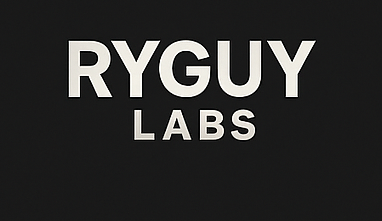The Psychology of a “Yes”: Why Your Sales Process Is More Than Just a Pitch
Selling isn’t just about having the best product or the most persuasive pitch. At its core, it’s about connecting with people—understanding what motivates them and guiding them through a process that feels intuitive, not transactional.
The word “yes” is powerful. It represents trust, alignment, and a decision to move forward. However, in sales, that one word rarely arrives in a single moment. It’s the result of a series of small, meaningful agreements built on psychological principles and emotional intelligence.
When I First Started in Sales...
Early in my sales career, I believed I was more skilled than I actually was. Confidence came easy, but it wasn’t grounded in self-awareness or experience. I quickly discovered that arrogance is a fragile foundation. Every rejection hit harder than it should have because I took it personally.
Initially, I responded by working harder—making more dials, pushing more conversations, chasing volume to outrun the discomfort of failure. That strategy led to burnout, not breakthroughs. Eventually, I realized I needed a more sustainable, effective approach.
I began to develop a routine that sharpened my focus and gave structure to my day. Rather than obsess over how many calls I could make, I concentrated on maximizing the value and intent behind each conversation. Every interaction became an opportunity to close—not just in the transactional sense, but in building connection, understanding needs, and moving one step closer to a solution.
It took time, but the process became second nature. My conversations became more fluid. Prospects could feel the shift, and so could I. Communication evolved into a genuine skill, and with it came stronger results. That transformation wasn't based on a script—it was based on psychology and presence.
Here are four core psychological principles that shaped my growth and now form the backbone of any ethical, effective sales process.
1. The Rule of Reciprocity
People are wired to respond positively to value. When someone offers something helpful without immediately asking for something in return, a natural sense of goodwill develops. This is known as the Rule of Reciprocity.
In sales, this principle means leading with generosity. Instead of jumping straight into a pitch, offer something meaningful first—a free resource, insight, or piece of advice tailored to the prospect’s situation. This creates a sense of partnership rather than a transaction.
Providing value upfront builds trust and sets the tone for a mutually beneficial conversation. When the time comes to ask for a meeting or propose a solution, the path is already paved with goodwill.
2. The Power of Social Proof
When making decisions—especially in unfamiliar territory—people look to others for cues. Social proof reassures prospects that others like them have made similar decisions and found success.
In my experience, sharing relevant testimonials or short success stories became one of the easiest ways to lower a prospect's resistance. I didn’t just mention names or logos—I told real stories about clients who faced similar challenges and found results through our solution. Those stories carried far more weight than product specs or sales promises.
When prospects see that their peers have already said “yes,” it gives them confidence to consider doing the same.
3. Commitment and Consistency
Once someone makes a small commitment, they are more likely to remain consistent with that action in future decisions. This principle is especially powerful in guiding prospects through a buying journey.
Small steps matter. A brief call, a free trial, or a simple opt-in can create a sense of progress and investment. These micro-commitments make the eventual decision to buy feel like a logical continuation rather than a leap.
Incorporating low-risk, high-value steps into your sales process allows prospects to ease into the relationship while building momentum toward a full commitment.
4. Liking and Rapport
People are more inclined to say “yes” to those they like and trust. While that may seem obvious, it’s frequently overlooked in sales conversations.
Building rapport isn’t about charm or manipulation. It’s about listening more than speaking, showing genuine curiosity, and finding real points of connection. Common ground—whether professional or personal—can break down walls and create openness.
Throughout my career, I found that the more I prioritized listening, the more effective I became. Prospects responded to authenticity, not performance. When people feel seen and understood, they become far more receptive to your message.
The Ethical Path to “Yes”
Sales should never feel like a pressure campaign. It should feel like a partnership. These psychological principles don’t exist to trick or corner people—they help create clarity, confidence, and trust. They bring a human approach to a process that can often feel mechanical or overly scripted.
Looking back, I’m grateful for the early struggles in my career. Those moments forced me to reevaluate, recalibrate, and eventually evolve. Today, sales isn’t about chasing a “yes.” It’s about earning it—through empathy, insight, and real connection.
Conclusion: Beyond the Pitch
Sales, at its best, is not about closing deals. It’s about opening conversations that matter.
It’s about recognizing that behind every decision is a human being with real challenges, goals, and motivations. Mastering the psychology behind a “yes” doesn’t just improve results—it transforms the experience for both you and your prospect.
Here’s a final thought to carry into your next conversation:
Am I here to pitch—or to connect?
One mindset earns resistance.
The other earns respect.
Keep exploring other RyGuy Insights to discover how these and other principles show up in real conversations

